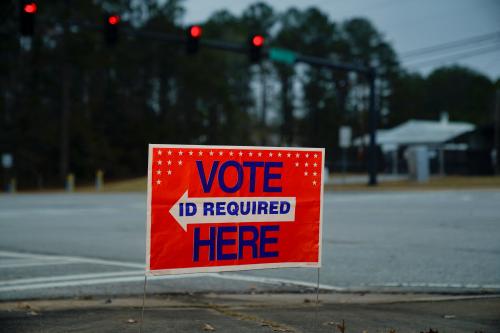As President Obama prepares to address the nation this evening, Americans with some grey in their hair have seen this movie before.
In May 1977, President Jimmy Carter gave a speech at Notre Dame rejecting what he termed the “inordinate fear of communism.” Less than three years later, he confessed that the invasion of Afghanistan in December 1979 had taught him more about the Soviet Union than he had learned previously in his entire presidency, and he initiated tough new anti-Soviet policies, including a covert campaign to arm the Afghan resistance.
In October 2011, President Barack Obama announced the full withdrawal of American troops from Iraq by year’s end. “The tide of war is receding,” he declared, and “America’s war in Iraq is over.” Tonight, Mr. Obama will announce his strategy for defeating a fanatical army that has seized a large swath of Iraqi territory.
The rise of ISIS is to the Obama presidency what the invasion of Afghanistan was to the Carter presidency: the refutation of a central premise of the administration’s foreign policy.
Mr. Obama’s pivot back to the Middle East has domestic political consequences as well. Senator Rand Paul (R-KY), an undeclared candidate for his party’s presidential nomination, has had the wind in his sails as he has advocated a libertarian-tinged policy of restraint abroad. ISIS’ beheading of two Americans has moved Republican sentiment back toward its longstanding hawkishness, boosting the prospects of neo-Reaganites such as Florida’s Sen. Marco Rubio and complicating Sen. Paul’s path.
As for the Democrats, there was restive grumbling among liberals as former Secretary of State Hillary Clinton became more open about her disagreements with Mr. Obama’s foreign policy, notably on Syria. But now, as the president toughens his stance in the Middle East, the breach is narrowing. If Secretary Clinton presents herself as a candidate for her party’s nomination, she will be able to run as the heir of a foreign policy that has moved sharply in her direction, and as the leader of a party whose major factions are in alignment.
It is likely that the 2016 presidential election will focus on the economy rather than foreign policy. Still, Americans know that presidents have the power to place their sons and daughters in harm’s way. That is why the reverberations from tonight’s speech are likely to be long-lasting.



Commentary
Obama, ISIS, and What a New War Means for 2016
September 10, 2014